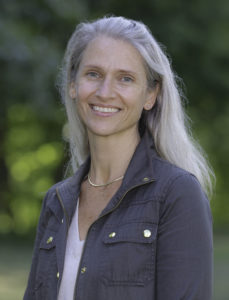Celebrate Our Teachers
Message from the headmaster
In 1944, so they say, an African American school teacher at a segregated school in Arkansas named Mattye Whyte Woodridge wrote a letter to the governor. She wrote letters to the governors of all the states, and to education leaders, and finally to Eleanor Roosevelt. She wrote to ask for more official civic recognition of the work done by teachers in schools across America.
It was near the end of World War II, and one can imagine the job of teacher expanding and evolving with the necessary absence of parents either in military service or at work. One can imagine teachers beginning to assume some aspects of the role parents might have played if they were able—helping students not just to be literate and numerate, but to develop character, discipline, and principles. One can imagine teachers needing to attend more to the stray emotions and dilemmas in children’s lives. And we know, as we do this so much for today’s children, that helping them develop social and emotional skills is a higher-level enterprise requiring patience and expertise.
Woodridge’s idea prompted Eleanor Roosevelt to go before Congress to argue for a specific day on which to celebrate the contributions of teachers. As it often has, it took a while—thirty or so years—for Teacher Appreciation Day to become a national holiday, and another long while for it to become a national week of celebration of the work of teachers—some of the only people whose jobs involve losing sleep over other people’s children.
This week we celebrate our teachers with an entirely new species of gratitude. The difficulty of their challenges this year is well-documented and the subject of much discussion—but only so much sympathy can mitigate the cumulative effects of what has been a uniquely exhausting and anxious time to be a teacher.
If you have ever tried to have a conversation in a hybrid environment—where some participants are online and some physically in the room—you will know that sometimes, even with the proper technology working well, it is a feat to keep everyone engaged. It is sometimes especially difficult to hear one another—whether because of layers of voices on Zooms or inadequate microphones and speakers. This difficulty hearing and following a class session is something students have lamented since the start of this year, and it remains a fundamental disconnect driving student disengagement during the pandemic.
That’s why it’s all the more extraordinary that our teachers are still helping students do powerful, meaningful, and high-quality work such as the Capstone projects our seniors here shared last Friday. In thirteen nearly empty venues with just a few of their peers and teachers looking on, students presented serious, imaginative research projects about such topics as ethical regulations in genetic coding, microtransactions in video games, antique tractor restoration, the importance of ecological education, the history of corsetry, sustainable fashion, engaging students through music, and subsidized housing in St. Johnsbury. Career and Technical education and art projects ranged across genres: paintings, a rocking chair, auto body paint, experimental poetic forms, and an animated short film.
What these students and so many others have accomplished would not be possible without these teachers, whose creative engagement and encouragement has not flagged despite the inhibitive choreographies and strict limits they have had to work within. They continue to have high expectations for students, and they don’t give up on them when things are hard. They are doing heroic work with humor and deep optimism about young people. So please, join me in thanking them.

Dr. Sharon L. Howell
Headmaster

